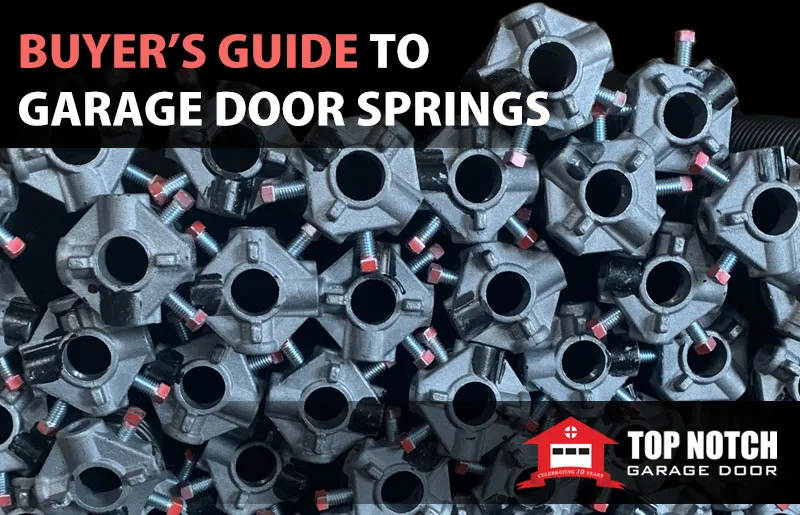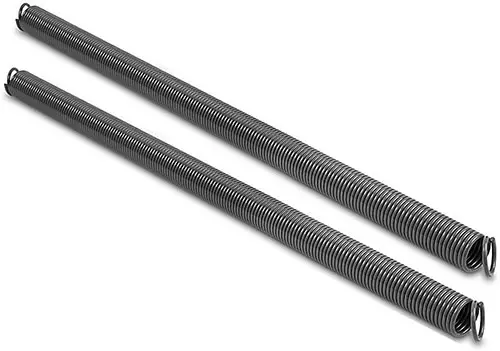
Buyer’s Guide to Garage Door Springs
If you’re getting ready have a new garage door installed or you need garage spring repair, you need to know which garage door spring option is right for you. Garage door springs play an important role in the tension system required to make your garage door go up and down seamlessly.
There are two primary types of garage door springs: torsion springs and extension springs.
Torsion Springs

Most double car garage doors use torsion springs. A torsion spring works by twisting its end along its axis. They are larger than extension springs and can carry the weight of heavy garage doors. While more expensive than extension springs, they may also last longer (average 10,000-15,000 cycles).
Extension Springs

Smaller or lighter garage doors typically use extension springs. An extension spring stretches as the load is applied to the spring. They are smaller and less expensive than torsion springs and typically feature a shorter lifecycle (average 5,000-10,000 cycles).
What Type of Garage Door Spring Is Best?
Lighter garage doors (such as non-insulated doors or basic single car garage doors) typically use extension springs. Extension springs are lighter, less expensive, and require less headroom above the garage door.
Heavier garage doors (such as insulated, wooden, or glass double car garage doors) typically use torsion spring systems. Torsion springs are larger and generally offer longer life cycles.
The type of springs you may need is based on a variety of factors such as garage door height, weight, material and style as well as options that are chosen when picking out your new garage door.
While many single car garage doors come included with extension springs by default, you may choose to upgrade or convert your existing tension system, depending on the needs of your specific application.
Have further questions about which option will work best for you? Call (770) 235-8189
Broken Garage Door Spring Repair
If you’re unsure if your garage door spring is broken, the most common way to tell is if your garage door won’t open or close. Without tension, your garage door will be very heavy and may be difficult/impossible to lift manually. If you are using an automatic opener, the weight of the garage door may be too heavy for the motor to lift, causing additional strain on the gears and potentially damaging your opener, which can in turn cause damage to your door while in operation.
Garage Door Spring Replacement Cost
The cost of spring repair varies by size and length of garage springs needed, but typically range between $110-$210 per spring, with labor prices ranging between $89-$149 for garage door spring replacement.
What If My Garage Door Spring Looks Different Than The Springs Above?
Various manufacturers may use alternate tension systems not listed above. Rest assured, we service and repair all types of garage door spring systems. We can also perform conversions on existing tension systems if you’re wanting/needing to update your current system.
Important Safety Information
Garage doors under tension are dangerous; we always recommend having a professional garage door technician provide you with service if garage spring replacement is needed. We do not recommend trying to do garage spring repairs on your own as accidents can cause serious injuries/death.
When you need reliable yet affordable service, simply call Top Notch Garage Door. We offer same day garage door spring repair and in most cases can be at the job within an hour (770) 235-8189

